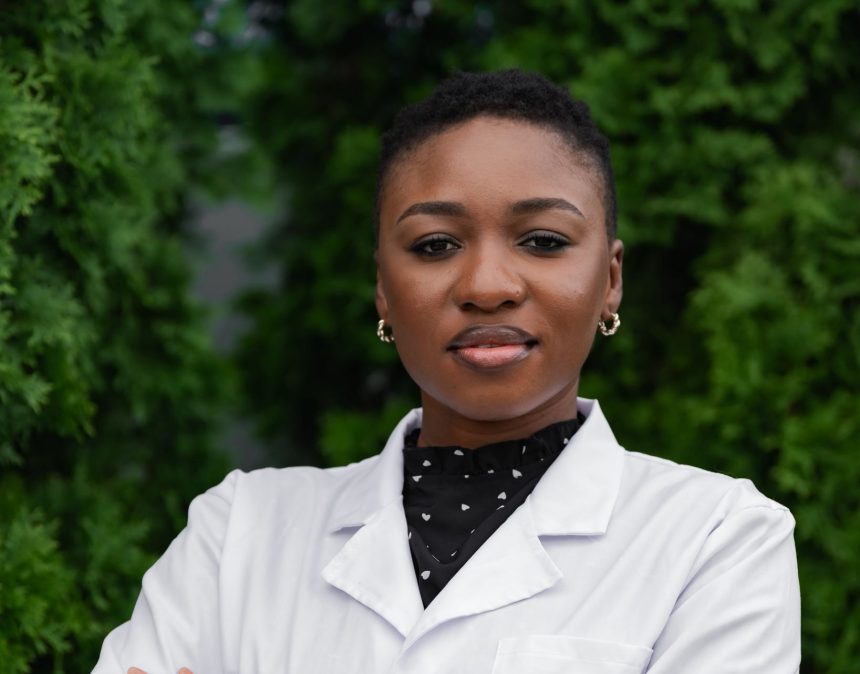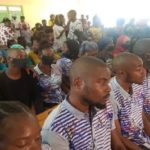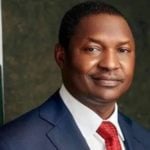In a government laboratory on the quiet edge of Abuja’s city center, a small group of scientists work late into the night, studying the genetic signatures of some of Nigeria’s deadliest diseases. Among them is Chiamaka Francisca Igweonu, a molecular diagnostics scientist whose work over the last few years has quietly but significantly shaped how the country responds to public health emergencies.
Igweonu, who worked with the National Biotechnology Development Agency (NABDA) between 2019 and 2022, played a pivotal role in efforts to modernize Nigeria’s diagnostic response to diseases such as Lassa fever, cholera, and malaria. At a time when delays in confirming test results were costing lives, her work helped streamline the process, reducing turnaround times, improving accuracy, and enhancing the country’s ability to respond quickly.
In 2020, during an upsurge in Lassa fever cases, her laboratory became one of the federal validation sites for molecular protocols that were later adopted nationally. One of her colleagues, Dr. Seun Fortune, described the change as more than technical. “We went from waiting days to get a diagnosis, to sometimes less than 24 hours,” he said. “That kind of speed changes everything. Chiamaka helped make that possible.”
She was not only working in the lab. As NABDA partnered with the Nigeria Centre for Disease Control and other agencies, Igweonu contributed to training programs nationwide. In workshops conducted in collaboration with the World Health Organization and Africa CDC, she trained lab staff on biosafety, sample quality control, and how to adapt molecular diagnostic tools to local conditions.
Those who attended remember her approach as hands-on and clear. “She didn’t just throw slides at us,” said Ifeanyi Okoro, a lab technologist who participated in a training session in Abuja. “She showed us what proper sample integrity means in practice. It’s a big reason we’ve seen fewer errors since then.”
Her work extended beyond day-to-day testing. In 2019, NABDA launched a national biobank for Lassa fever samples, aiming to store biospecimens for research and the development of diagnostics. Igweonu was appointed to the core team that managed the collection, processing, and cataloging of these specimens. She implemented a barcode tracking system and introduced checks that improved sample preservation in challenging field conditions, particularly in high-incidence regions such as Edo and Ebonyi States.
The biobank has since become a reference point for research, not just in Nigeria but across West Africa. Researchers at ACEGID and CEPI have used its specimens in ongoing studies on diagnostic tools and treatment. Much of that value came from early technical work done by Igweonu and her team.
She also played a key role in developing a digital database that linked patient information with biological samples, allowing future researchers to perform retrospective studies. That database later became the template for other biobanking efforts, including those launched during the COVID-19 pandemic.
Though she avoids the spotlight, her former supervisors speak openly about her impact. “Chiamaka helped turn ideas into systems,” said Dr. Fortune. “She made sure what we built didn’t fall apart after the project ended.”
In recent years, NABDA has garnered increased international attention, with organizations such as FIND and CEPI initiating collaborations that build upon work done during Igweonu’s tenure at the agency. It’s difficult to trace the success of these partnerships without acknowledging the behind-the-scenes work of mid-career scientists like her.
In a field where infrastructure and resources are often in short supply, the ability to adapt and innovate becomes more important than any single piece of equipment. That’s what colleagues say made Igweonu’s role unique. She found ways to make things work, sometimes, with little more than good planning, rigor, and a firm belief that public health should not wait for perfect conditions.
When asked recently what drew her to molecular diagnostics in the first place, her answer was simple: “I liked that you could see results. That the data you got could help someone right away.” And for thousands of patients across Nigeria, that quiet commitment continues to make a difference.
WATCH TOP VIDEOS FROM NIGERIAN TRIBUNE TV
- Let’s Talk About SELF-AWARENESS
- Is Your Confidence Mistaken for Pride? Let’s talk about it
- Is Etiquette About Perfection…Or Just Not Being Rude?
- Top Psychologist Reveal 3 Signs You’re Struggling With Imposter Syndrome
- Do You Pick Up Work-Related Calls at Midnight or Never? Let’s Talk About Boundaries







